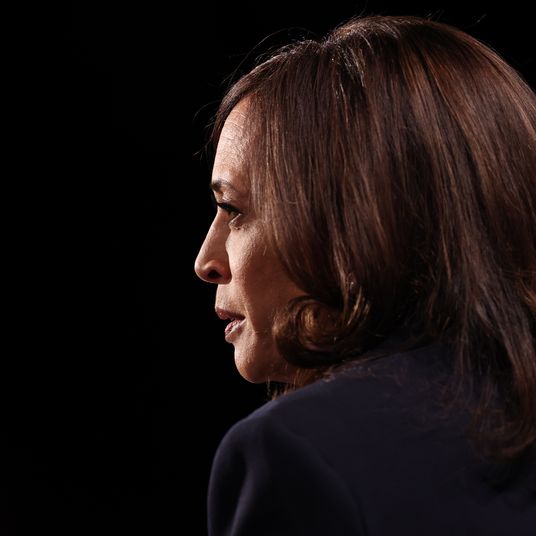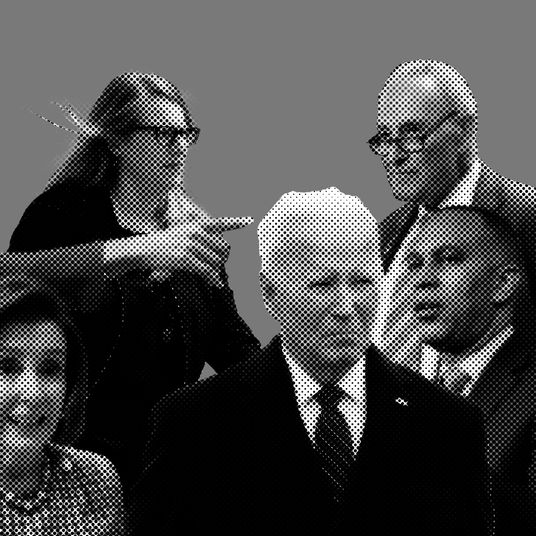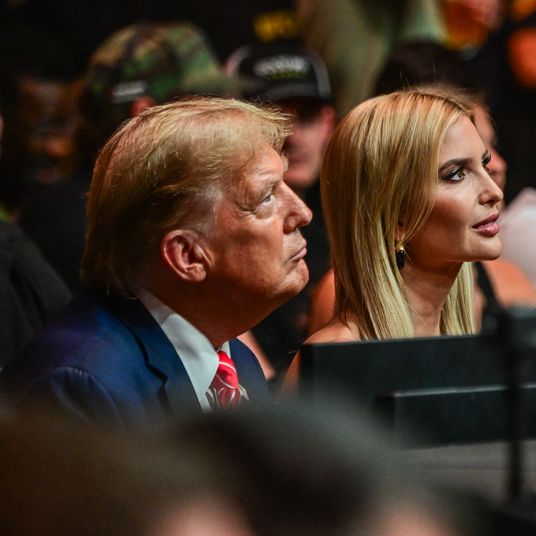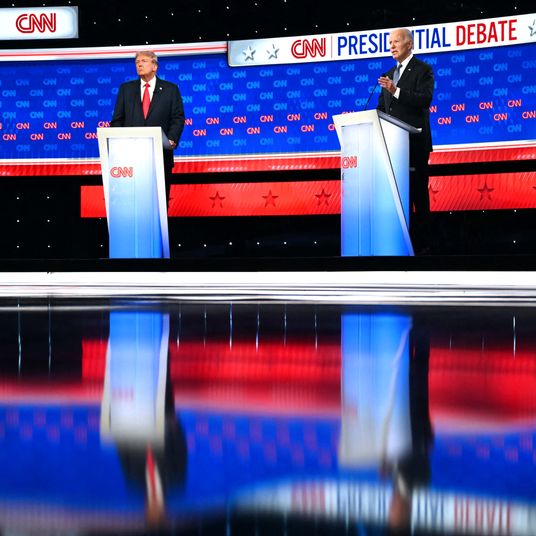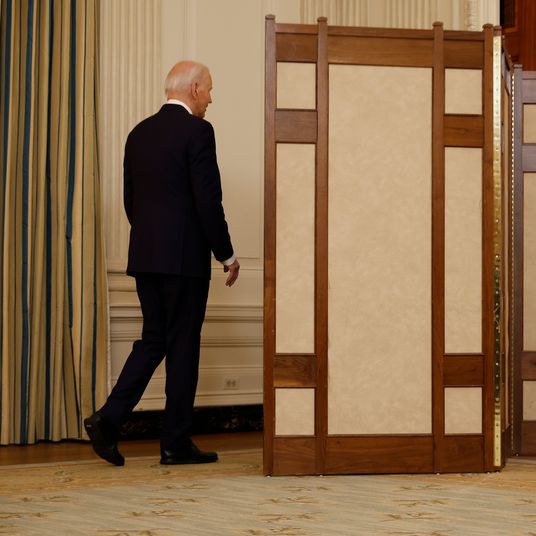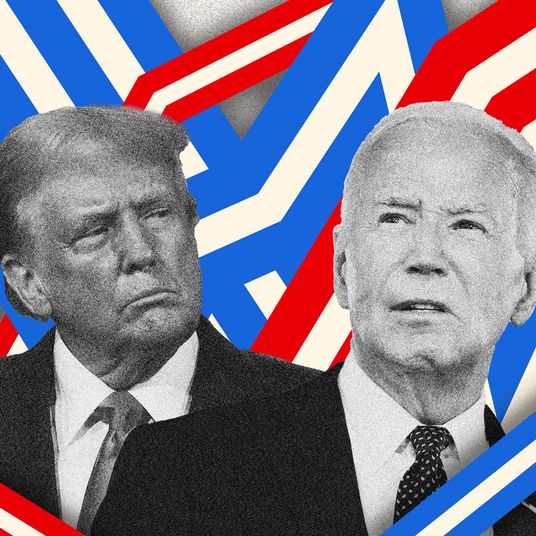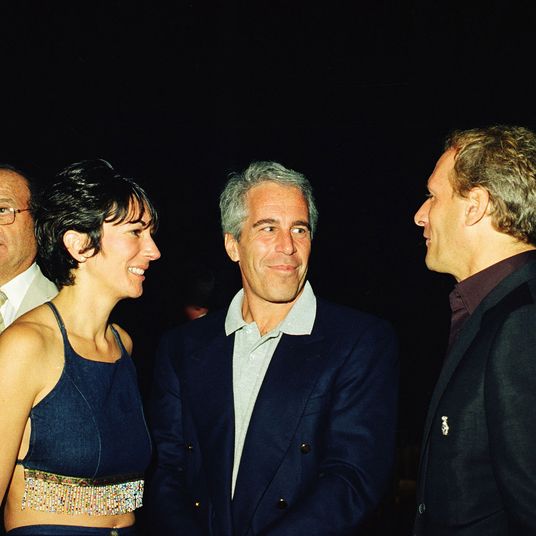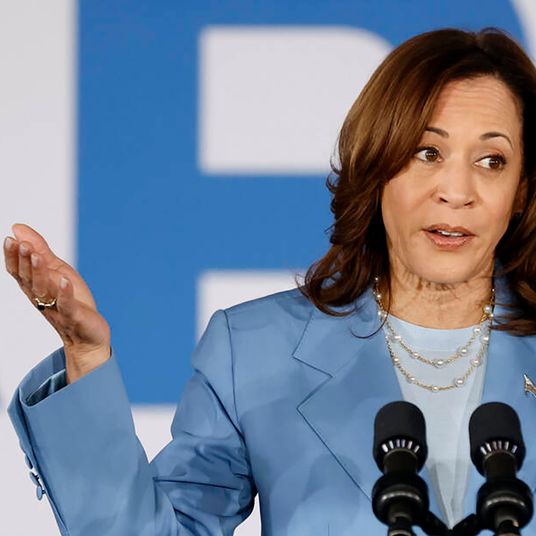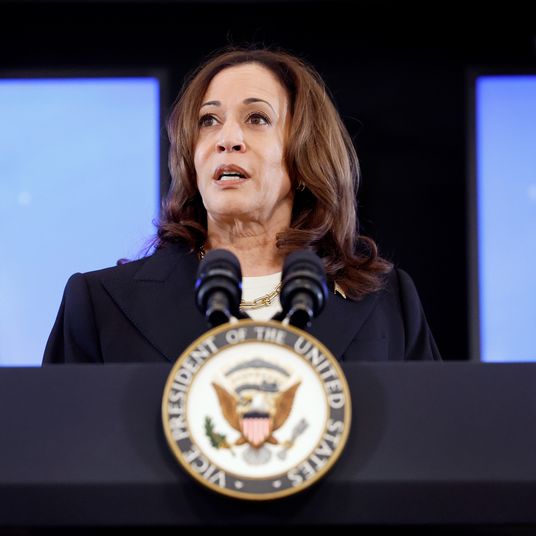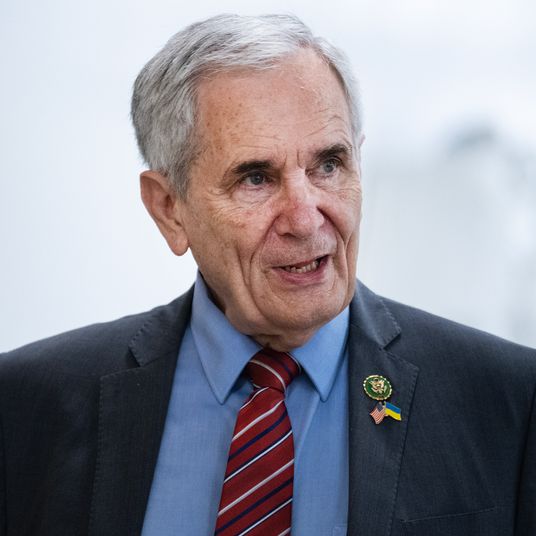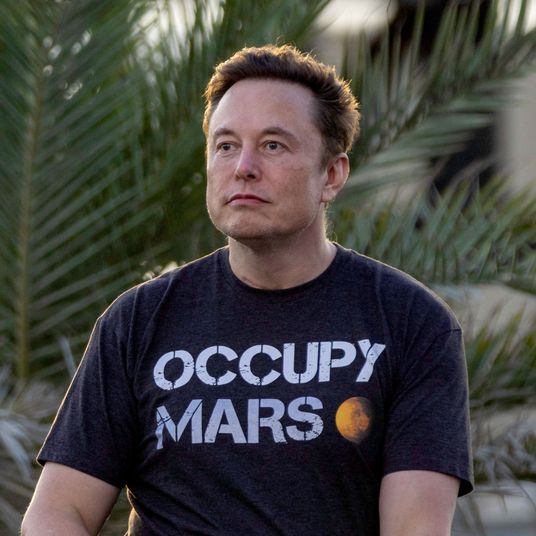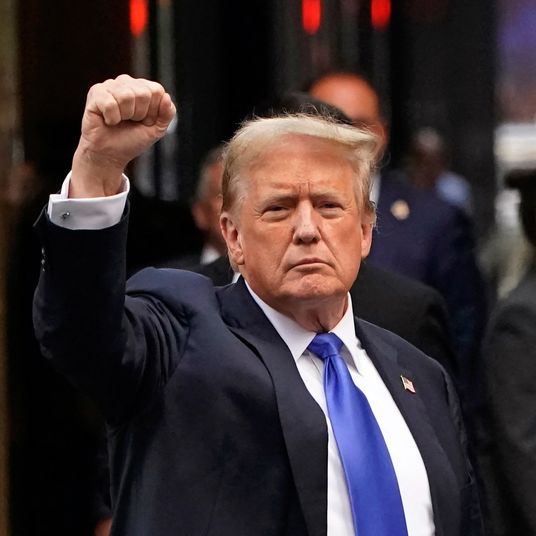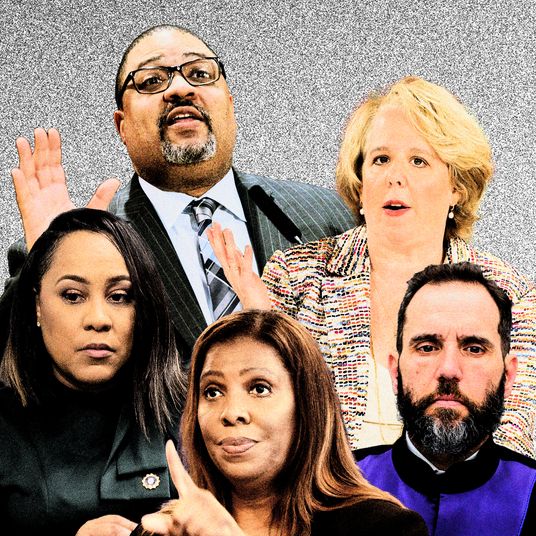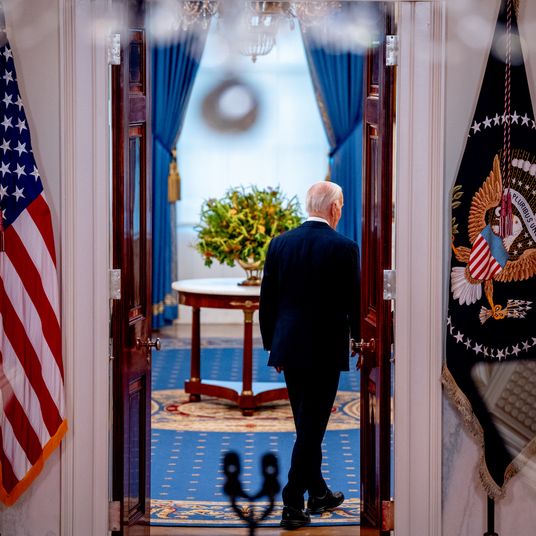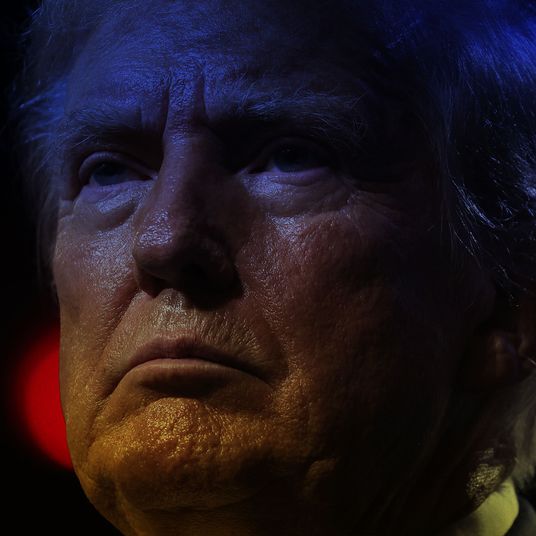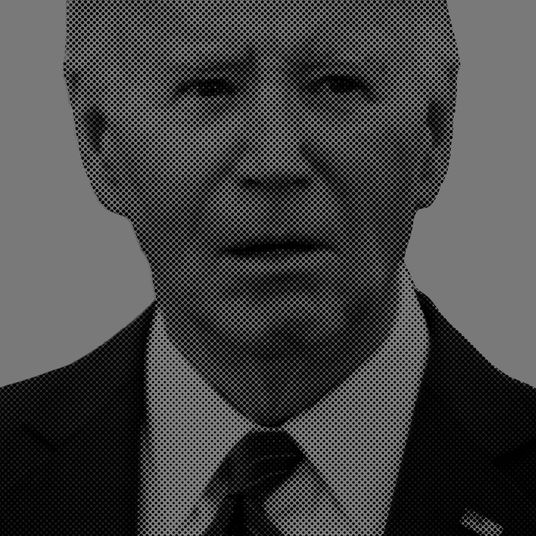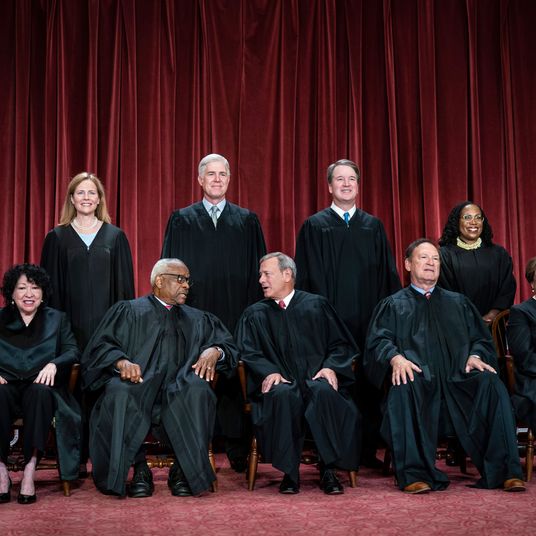
Kara Swisher has been trying to interview Representative Alexandria Ocasio-Cortez — who needs no introduction for nearly anyone at this point — for a long time. It finally happened for the latest episode of On With Kara Swisher. From taking on AI deepfakes and taking down Marjorie Taylor Greene, to blocking Amazon’s HQ2 and seeing through the fog of war in Israel, to the one thing worth appreciating about Elon Musk and the real danger of a second Trump term — their long, fascinating conversation covers a lot of ground. A lightly edited transcript of the complete interview is below.

On With Kara Swisher
Subscribe on:
Kara Swisher: All right, so let’s start with talking about tech and the concentration of money and power in tech. The largest companies in America, as I talk about all the time by market cap, are Microsoft, Nvidia, right now, Apple, Alphabet, Meta, and Amazon — they’re all tech companies. Give me your 30,000-foot view. What effect does all the tech money and power have on American democracy?
Alexandria Ocasio-Cortez: Yeah, I mean, it’s something that I think about constantly because I see a lot of this concentration of money and power also in the way that it overlaps in tech as, a lot of it as being almost the automation of the existing preexisting systems of inequality that predate the internet. And —
Swisher: There’s always been rich, powerful companies, whether it’s defense contractors, pharmaceutical, oil companies come to mind.
Ocasio-Cortez: Right. But what tech does is that, like it does with many other industries, just as it can streamline, automate, and cut out middlemen in the delivery of certain services, it also streamlines and accelerates the modes of inequality to a degree that I don’t think could have ever happened prior to the internet.
Swisher: How do you look at them when you deal with them? You’re obviously a younger person and you are very good at technology — you’re one of the few in Congress that are — but how do you look at them as a group of people because they are unregulated, they’re not accountable, and in fact the legislation benefits them.
Ocasio-Cortez: Yeah, I mean, I look at them as oligarchs and aristocrats, and I think … I went to college at an interesting time when kind of this web 2.0 start-up, and more nascent Facebook, et cetera, when there was such a heavy emphasis on just being different and this larger sweeping rhetoric about disrupting and changing society, and it’s actually been the most conformist and status quo entrenchment of power that I think we’ve seen in the 21st century.
And it’s an interesting thing because when I was growing up, one thing that I think is a little different between what Gen Z experiences and what I saw as a millennial is that these CEOs that started these companies were our contemporaries. You had Mark Zuckerberg, you had —
Swisher: Just turned 40.
Ocasio-Cortez: Right, right, and you had the founders of Instagram and Snapchat, and there was this idea that these are our peers that are doing this, and I think it created a little bit more of a social acceptance, whereas I don’t think Gen Z or most people could name who the CEO or founder of TikTok is. And I think that that has also been a parallel track. The ascent of the tech industry and the consolidation of money and power has also been on this parallel story of a post-recession America that had an unequal recovery and people cannot even afford to buy a two-bedroom starter home. And so people are no longer seeing tech with the rose-colored glasses that they did ten years ago or 15 years ago.
Swisher: It’s interesting because many years ago I was talking about income inequality with a very wealthy person and I said, “You’re either going to have to do something about income inequality or you’re going to have to armor-plate your Tesla.” And as I was saying that I thought, Oh, he wants to armor-plate his Tesla.
Ocasio-Cortez: A lot of them do.
Swisher: It was a really interesting moment. And they were saying, “Well, it’s because I made my own money.” But what they did is dressed it up in sort of this, everybodyspeak, this communityspeak. How dangerous do you think that is?
Ocasio-Cortez: I think it’s profoundly dangerous. I think about this a lot, this whole idea of the armor-plated Tesla. A lot of these billionaires think that they’re going to be able to save themselves from climate change.
Swisher: Yes, they do.
Ocasio-Cortez: They have their compounds and they have—
Swisher: They have their rocket ships to Mars.
Ocasio-Cortez: Their rocket ships to Mars. And there is a certain delusion of grandeur that they are greater than the meat sack that they live in.
Swisher: Yeah, they like to use that term, meat sack.
Ocasio-Cortez: Yeah, exactly.
Swisher: That’s an Elon Musk thing. But let me ask you a question, you’ve had lots of heated back-and-forths with him, some weird creepy ones on his part, I’ll say. There are too many lists here. But just a few days ago you said you’re going to sell your Tesla to trade it in for a union-made electric car, very good bargains right now, by the way. You made fun of Twitter Blue. In March you tweeted, “You’re an immigrant,” after he tweeted a version of the Great Replacement Theory. He wrote that, “Biden just wants to import voters.” Meanwhile, he said about you, “She’s just not that smart.” That was one of the nicer things. Trust me, I go back and forth with him quite a bit. So talk about that. He’s sort of the exemplification of that right now.
Ocasio-Cortez: What I appreciate, if there’s anything to say that I can appreciate about Elon Musk, is that he’s far more honest about whether it’s intentional or not. He’s far more honest about his personality idiosyncrasies governing his company, whereas a lot of other CEOs dress up their subjective decision-making and opinions in some sort of objective corporate or business decisions.
Swisher: You can see him fully.
Ocasio-Cortez: Yeah, you can see that everything that is happening in Twitter is just an extension of this personality project that he’s engaged in. And I think that very, very similar dynamics play out at Meta. And all of this is a social circle, and you see this with who’s on the boards of these companies, on the initiatives that they create. It’s not just a boys’ club, it’s like this weird libertarian —
Swisher: [Libertarian] lite.
Ocasio-Cortez: Lite, if you can even call it that in some circles, it’s pretty heavy in others. And they try to put this almost scientific objectivity. I mean, algorithms are just coded opinions in a lot of ways, coded judgments. But if you call it an algorithm, it’s almost as though a computer — as though this is some sort of scientific determination of what is best and it’s really, in a lot of instances, coded bias. And so I think when it comes to Elon, this is such a transparent play for validation of ego.
Swisher: Of ego. Back in 2018 and ’19, you tangled with Amazon, a very much friendlier billionaire, not that friendly in my estimation, but he’s having a good time with his midlife crisis. But over at second headquarters, HQ2, they planned on building in Long Island City, Queens, and you won. Last year, they announced they were pausing construction of their second headquarters in Virginia, and you tweeted, “We were right.” Do you have any regrets about that fight? Some people think you were still wrong to have done it.
Ocasio-Cortez: No, I do not regret it at all. And our community doesn’t regret it at all too. We have proven and shown over and over and over again that everything that we said at that time was right. One of the core arguments that I made then is Amazon is coming anyway. They are a multibillion-dollar corporation. They want to be in New York City. We have an enormous talent base. Everyday working people do not need to give Amazon billions of dollars in tax breaks and other incentives in order for them to come here. And so argument number one is they’re coming and they’re bluffing. They’re bluffing that they won’t come to New York City. And we were right: Amazon has expanded their presence in New York City. They’ve hired tons of people in New York City and we did not have to pay them to do that.
But secondly, the argument is that this is going to hurt working people if we do do it. And we kind of benefited from this natural experiment in a way that Amazon put up in that we didn’t set up HQ2 and Virginia did. And the same things that we cautioned about, that it was going to be a taxpayer-funded boondoggle that working people were going to be displaced, that it wasn’t going to be local people that get jobs, but really Seattle-based or other folks that are just going to relocate and displace folks that are actually looking for opportunity, all of those things came out to bear. But that’s not to say that it wasn’t a huge political fight and it wasn’t a partisan one either. There were billboards put up in Times Square talking about it. And not only that, I had a very well-funded primary challenge shortly after that.
Swisher: Now you’re talking about political power, and not just Elon, he wasn’t always a right-wing troll, by the way, he told me he hated Trump many times. But there’s a noticeable contingent in Silicon Valley VCs that have made a hard-right turn, you’ve noticed that in a lot of ways. I’m talking about people like David Sacks, Chamath Palihapitiya, and Marc Andreessen, all of whom were either Democrats or had no political affiliation. What do you make when some of the richest, most powerful people on Earth are taking this shift?
Ocasio-Cortez: Well, I think we are in a time of really interesting political realignment in the United States. I can’t say where it’s going to land specifically, but I do think that this is somewhat of a microcosm of that. My assessment — I’m a progressive Democrat, my politics may be a little bit more left than other folks — but I think actually this shift also does correspond with a larger shift in a sharper and more class-conscious political awareness in American society and politics.
I think that pre-recession, the Democratic Party was a corporate-friendly party of just dyed-in-the-wool neoliberalism of free-trade agreements that totally fleeced the working class of being very friendly. And really the edgiest thing that Democrats did was support gay marriage in some pockets. I mean, we forget how recent it is.
Swisher: Oh, I remember.
Ocasio-Cortez: And so you would have the social issue here or there that wasn’t that — It was like, “Okay, yeah, gay folks can get married. Let’s not talk about trans folks. Let’s not talk …” It was this very kind of corporate-pride Democratic Party, which is very easy to cheer for and be a part of. If you’re a rich white guy, it asks nothing of you to contribute to society. And so I think that it’s an easy thing to support if you are part of the one percent that also frankly is part of gutting public infrastructure. And so there was a social upside to being a Democrat and being the superwealthy CEO.
Swisher: I want to talk a little bit more about tech. AI right now obviously is a big topic in Congress, lots of money is thrown at LLMs, these large language models. They’re getting released to the public, incorporated into industries, harder to mitigate the downsides or claw back any unwanted features. Not much meaningful legislation has been passed in tech ever, I would say ever.
Ocasio-Cortez: Absolutely.
Swisher: Talk a little bit about, and then I’m going to ask you specifically about yours, I mean, Chuck Schumer has gotten up many times and said, “We’re really interested and serious about regulating AI,” and I am the one sitting in back saying, “Blah, blah, blah. Also, blah, Chuck.” You didn’t to do it last time. You didn’t do it this time. Talk a little bit about where it is, and I want to talk specifically about your bill in particular, the Defiance Act.
Ocasio-Cortez: So I was named to the AI Task Force, which is a bipartisan task force. And so I hear a lot about Republicans talking about this, Democrats talking about this, and one thing that I think may be the slightest glimmer of hope in the situation is that I do believe that there’s a profound self-awareness in Congress and at the very least in the folks setting policy here, that they really screwed up—
Swisher: The first time.
Ocasio-Cortez: … On tech the first time, and that they don’t want to replay this with AI, with this laissez-faire, let them do what they do and we’ll regulate the problems later. I think there is, I think, a bipartisan understanding that that was a mistake and some things we need to get ahead of. Now the question is what parts of this —
Swisher: We just had an executive order from Biden, that’s not good enough to be governing —
Ocasio-Cortez: No, no, not at all.
Swisher: It was a good executive order, but —
Ocasio-Cortez: Yeah, but executive orders just can’t do much without an act of Congress. And so we —
Swisher: So what’s the problem with you all?
Ocasio-Cortez: I think it’s the same problem as in any other big-money industry, which is lobbying. Big tech is a major lobby. They have gotten the memo 10,000 percent that if they want to keep doing what they’re doing, they’ve got to invest a lot of money in lobbyists.
Swisher: I get the lobbying part, but what do you all need to do to make this happen? And then we’ll get to your specific bill, which seems to be a relatively light lift to pass.
Ocasio-Cortez: Yeah. Well, I think in talking about making this happen is are we talking about antitrust? Are we talking about regulation of AI? For me, I think, and it is, to me, the discussing …
Ocasio-Cortez: To me, discussing even these smaller bills, I actually think is really important in carving the path to the bigger stuff because there’s no muscle memory for it. There is not the institutional habit or the … We’re not used to pulling any levers on tech outside of spending money. And so once we start figuring out that we can do these smaller things, I think, and in the way that we do the small stuff is also the way that we do the big stuff. And so to me, defiance is an opening silo in how we engage this issue and be successful at it as well.
Swisher: This is the bipartisan bill, which would allow victims of deepfake pornography to pursue civil actions against perpetrators. Tech is very insulated in immunity. Little bits and pieces have been pulled off around sex trafficking and things like that. But talk about the bill and why is this the one you picked? Are civil penalties enough? There are federal laws against child pornography. Should creating knowingly sharing non-consensual deep fake porn be a federal crime?
Ocasio-Cortez: Yeah. Well, first of all, this is a really important and core question that we have discussed a lot with. And the first thing that I think for me is that the way I go about legislating always starts with bringing in impacted people and communities first. And so this was not a bill that was written with law enforcement. This was a bill that was written with survivors, with sexual abuse survivor organizations, organizations like RAINN, National Organization of Women, civil-liberties and civil-rights organizations. And part of my job as a legislator too, is dealing with the intersections of these issues.
While I wouldn’t come out and say that the bill doesn’t prohibit or prevent, this is becoming established as a federal crime, I do think that there are so many questions about establishing new crimes, given the current bias in our criminal-justice system, that our first question was given the total lack of protections, how do we prevent this from happening in the first place? And by establishing a course of action for survivors first, that creates precedent, it allows and gives platforms, I think something to look at and cite in determining their own policies. And then as this conversation evolves further, we can have those conversations. But it is very much rooted, I think, in the survivor space that this is not what they were seeking.
Swisher: Sure. Why not go after the platforms themselves? That seems to be where it’s happening. I mean, it’s very hard to push back on them. You picked this because people can agree on it or —
Ocasio-Cortez: Yeah. Well, our current political landscape is that we have a Republican-controlled House, we have a Democratic-controlled Senate, so we have split government. The only thing that can stand passage right now is something that can gain bipartisan agreement. And so right now, there’s both a policy and a political project that happens at the same time. There are policy projects that deal with the present conditions, and then there’s the larger political project in changing those conditions so that we can do more. The larger political project that I believe in is building a robust, not just party, but general politics and government that can stand up to these big guys that they just don’t have the capacity to do right now. We’re not powerful enough yet.
Swisher: You said the government isn’t as powerful as these companies.
Ocasio-Cortez: Absolutely.
Swisher: Something astonishing. But what’s interesting is this should pass easily. Correct. Where is it?
Ocasio-Cortez: It should. It should. And in fact, we have a lot of momentum that’s going on in the Senate. We have Dick Durbin along with Lindsay Graham and Josh Hawley. And so it’s actually —
Swisher: All pals.
Ocasio-Cortez: Yeah, all the friends are in town. So that’s actually being what is known as hotwired or hotline through the Senate. And we have some bipartisan agreement here in the House. And so our goal and the momentum is looking strong now, if we can get that pushed through, if we can get it signed, it would be one of the first bipartisan pieces of AI legislation to pass Congress. And that I think is when we’re actually starting to —
Swisher: So that’s the only way to do it, start off small, not with a big home-run hit, right?
Ocasio-Cortez: I mean, it doesn’t —
Swisher: It’s not unimportant.
Ocasio-Cortez: No, it’s not. And it doesn’t preclude us starting with the big stuff, but we’ve taken these big swings in tech, for me, in the antitrust space, and it’s been instructive, and it’s been important to do the powerful big swing in systemic stuff. It’s also been very instructive to see how it falls apart at the last minute.
Swisher: Well, except in Europe.
Ocasio-Cortez: Yeah.
Swisher: Except anywhere.
Ocasio-Cortez: Yeah. I’m talking about U.S. politics.
Swisher: I get the money, I get the power, I get everything else. But at some point, your constituents want this, right? You talk a lot about what constituents want and what they agree on and things like that. And I still don’t understand it. One of the things they could pass was the TikTok ban, right? When they should have been passing a privacy bill for everybody.
Ocasio-Cortez: Absolutely.
Swisher: House approved it. 360 to 58. You voted against it. In March of last year, you came out against banning TikTok, saying it wasn’t a solution and data-privacy concerns are more important. And Congress hadn’t received a classified briefing about the risks the app poses. I do believe the Chinese will use it if they could because we would, right?
Ocasio-Cortez: Yes.
Swisher: I don’t actually have to —
Ocasio-Cortez: And since than we have received —
Swisher: Yes. Why wasn’t the briefing persuasive to you?
Ocasio-Cortez: There are a couple of things that were not persuasive to me. And the thing is that I very much agree with the points that you made. This idea that the threat of Chinese-owned tech infrastructure or any foreign-owned tech infrastructure responsible for dissemination of so much information would not be used or weaponized in the United States, it’s totally naive to think that that wouldn’t happen. It’s absolutely real. I think it is a real and legitimate national-security concern. However—
Swisher: And you’ve been briefed on this.
Ocasio-Cortez: And I will say that with the information presented to full congressional briefings, I did not believe that what I have seen. And I want to be clear, that there are different kind of circles and scales of information access, intelligence access. You have the Gang of Eight, et cetera, of which I am not a member. But with what was presented to every member of Congress as proof, I actually think wasn’t. And it’s not to say that that doesn’t exist, but it is to say that I do not believe that it constituted the urgency with which this matter was presented. And what I am very concerned about is that we are not looking at the larger landscape of risk in either direction. We’ve seen foreign adversaries weaponize U.S.-based companies like Meta and Instagram. We are not talking about foreign ownership stake in U.S. companies. You have the Saudi financial investment in Twitter or X, for example.
Swisher: Yeah, they’re all over the place.
Ocasio-Cortez: And so to me, when you take that paired with public statements by the authors and main people behind this legislation, that a lot of this was explicitly politically motivated around narratives that they saw circulating around Israel, Gaza, Palestine, it raises some of the censorship concerns. It legitimizes fears that a lot of people had about this. And I think that what we need to do is address again, the core underlying issues. I don’t even think a for sale is a bad thing if it’s structured in a way that is responsible. And I felt like there was too much political influence in an issue that should be rooted in more sound policymaking.
Swisher: By say the other tech companies or who?
Ocasio-Cortez: Yeah, I mean, for some rich guy to take over TikTok in the U.S., you’re going to make someone very, very rich —
Swisher: Possibly.
Ocasio-Cortez: — Creating pressure to deeply discount.
Swisher: So you wanted a broader data-privacy law, should there have been a bill that was more broadly addressing all the platforms?
Ocasio-Cortez: Yeah, absolutely.
Swisher: TikTok is a genuinely unusual situation of a Chinese company that has huge tentacles throughout the United States.
Ocasio-Cortez: And I do think that the concerns around security and the Chinese are legitimate.
Swisher: So it was interesting who was on your side? Former president Trump came out against the ban before being for it, and in fact, had issued a crazy executive order about it. Representatives Marjorie Taylor Greene, Lauren Boebert, Matt Gaetz, Chip Roy, Paul Gosar all voted against it with you. So strange bedfellows to say the least. What do you think you had in common with them?
Ocasio-Cortez: You’d be surprised, but antitrust brings together odd bedfellows between Democrats and Republicans. People like Matt Gaetz are also pretty reliable in terms of breaking up corporate monopolies in the tech sector.
Swisher: They’re Lina Khan fans.
Ocasio-Cortez: Yeah, and I think that antitrust —
Swisher: She’s not a fan of them, I’m guessing, but she won’t say.
Ocasio-Cortez: Yeah. I mean, you take what you can get on the individual questions, and I think that there are certain issues that do cross party lines, and bipartisanship is not just for bailing out Wall Street and voting for endless war, there’s also bipartisanship in the space of civil liberties. You know, Jim Jordan has oddly agreed with me on facial-recognition technology —
Swisher: I was going to ask you about that.
Ocasio-Cortez: — Civil liberties, freedoms, things like that. So sometimes it’s not just, “Oh, they’re nuts.” And it’s odd thing by association. There are similar conclusions, perhaps for different ideological reasons, but we come to similar conclusions after the —
Swisher: So let’s talk about that a little bit. Obviously you recently had some words with Marjorie Taylor Greene. I want to ask about this because this was after she insulted Representative Jasmine Crockett in oversight hearings where you’re a second ranking person on that very important committee.
Jasmine Crockett: Do you know what we’re here for? You know we’re here about—
James Comer: Point of order.
Marjorie Taylor Greene: I don’t think you know what you’re here for.
Crockett: Well, you’re the one talking about —
Taylor Greene: I think your fake eyelashes are messing up what you’re reading.
Comer: Hold on. Hold on. Order.
Alexandria Ocasio-Cortez: I do have a point of order. And I would like to move to take down Ms. Greene’s words. That is absolutely unacceptable. How dare you attack the physical appearance of another person?!
Taylor Greene: Are your feelings hurt?
Ocasio-Cortez: Move her words down? Oh girl, baby girl.
Taylor Greene: Oh, really?
Ocasio-Cortez: Don’t even play with me.
Taylor Greene: Baby girl? I don’t think —
Ocasio-Cortez: We are going to move. And we’re going to take your words down.
Swisher: Listen, I like a “baby girl” as much as the next person, and you deliver it perfectly. Let me say. But talk about that encounter. How do you feel later from that? And then I want to talk about how you’re positioning yourself. This was a moment in Congress.
Ocasio-Cortez: I wrestled with it a lot, with both things, because I totally hear the — I completely understand folks looking at this and saying, “Oh, this is terrible. Look at how low we’ve sunk,” et cetera. And I want folks who say that to just hold a little space for what it means to be a woman of color in a body that is 70 percent male and overwhelmingly white. And to constantly be put in the double bind and impossible situation of either having an institution not protect you. There are rules against what happened against Jasmine Crockett.
Swisher: The first comment, which was about her eyelashes, I guess, right?
Ocasio-Cortez: Yes, there are rules against this, and the rules exist for everybody, but you. They apply to everyone else’s protection but you. And so women of color who are often I think looked at or deemed unprofessional, et cetera, in moments like these, it’s because you have to choose between accepting the indignity of your treatment because —
Swisher: And swallowing it.
Ocasio-Cortez: — The institution will not protect you, or standing up for yourself and being smeared because standing up for yourself is then equated with the original offense. And I will say that with Jasmine Crockett, she’s a freshman. She’s one of the only Black women on that committee. It is not a coincidence that she was the one that was specifically picked out for that, and especially for her as a freshman. What I saw happen to her, I came to a place where I ate it constantly in my freshman year. I was ridiculed, picked out by Democrats and Republicans. No one ever defended me. That whole viral speech a couple years ago when Ted Yoho accosted me on the floor of the Capitol, and I had to go to the floor and defend myself because the institution wouldn’t.
In front of reporters, Representative Yoho called me, and I quote, “A fucking bitch.” These are the words that Representative Yoho levied against a congresswoman, the congresswoman that not only represents New York’s 14th Congressional District, but every congresswoman and every woman in this country, because all of us have had to deal with this in some form, some way, some shape at some point in our lives.
So while I empathize, I understand what I want people to feel in the shame is that I want them to feel the shame in the fact that there was a vote to allow this treatment. And I want people to feel the shame that this was allowed to happen, that the offense was allowed to happen. And I hope that people understand that this is not just about Congress, but —
Swisher: Well, it’s a little of online discussion jumping offline.
Ocasio-Cortez: It’s that too. It’s about our social treatment of one another. And to me, it was important for me to do it because I didn’t want her to have to be the one that had to stick up for herself while everyone stayed quiet.
Swisher: But in doing so, she also said, “Bleach blonde, bad-built butch body.”
Ocasio-Cortez: Right.
Swisher: Which wasn’t great. I would say not great, but I get the sucking up, having to suck up to it, I get the no one’s defending you. Do you regret it or not? Because I get why you’d want to as a person, but in engaging in a Twitter-like back-and-forth. In a physical place changes the nature of it, back-and-forth in a physical place changes the nature of it completely.
Ocasio-Cortez: It does, but to be honest, I don’t regret it. I understand. I wrestled with it. I definitely wrestled with it. But the reason I don’t regret it is because I know what would’ve happened if it didn’t happen, if it didn’t occur. And what would’ve happened was just as that stuff jumps and changes the physical place that was happening regardless, The moment that Jasmine Crockett was attacked in that way, it had happened. And so what I know is that if I truly believe that if I didn’t say anything, if there wasn’t resistance to it would’ve gotten worse. It was inevitable.
Swisher: Yeah, and that’s what she wants.
Ocasio-Cortez: This has been years in the making.
Swisher: Of course that is what she wants. She is an internet troll walking around in real life.
Ocasio-Cortez: Correct. However, while it may be what she wants, I will tell you right now, it’s not what Republicans want. And it’s like, putting politics and the esteem and the importance of these institutions aside, and I’m going to talk about just street fight: Sometimes it’s about who draws more blood. And right now, this is not the fight that Republicans want to pick. They don’t want to pick it with women. They don’t want to enrage women. And I think it’s important to also show and have an example of women sticking up for each other. And we have communities that we represent. And I know that when I go home, a lot of what I hear is from black women saying, “Thank you for standing up for us because no one else does, and it’s usually just us that have to stick up for each other.”
Swisher: Right.
Ocasio-Cortez: And again, was this a great moment? No. But at the same time, it wasn’t a great moment regardless. Marjorie Taylor Greene’s selfishness and narcissism is part of what is screwing over the Republican Party. And while it may be good for her, in a way, she is such an embodiment of their core values that they are trying to distract the public from.
Swisher: Let’s talk about progressive politics because the point is to vote people. In Oregon, voters recently voted for Establishment candidates over progressives in three Democratic primaries in one race. Oregon is a relatively left-leaning state. Talk about where progressive politics are, and then we’re going to talk about you specifically. You and Bernie Sanders are probably the most prominent democratic socialists in America. Walk us through the vision for winning and wielding power while working within the democratic faith for you now, because you’ve morphed. And we’ll get into that in a second, but talk to me about where that is.
Ocasio-Cortez: I think there’s no discussing progressive performance this cycle without talking about AIPAC. There’s just none in the — not just since October 7.
Swisher: This is the pro-Israel.
Ocasio-Cortez: Yes, the American-Israel Political Action Committee, which is not — it is an extreme right-wing organization. They endorse insurrectionist members of Congress that sought to overturn the presidential election. This is not just about general friendly pro-Israel policy. This is about backing a right-wing Israeli coalition led by Benjamin Netanyahu and a political operation to punish anyone who stands up to this right-wing Israeli government and stands up for, in the most basic sense, Palestinian human rights. And they have a big money network just like big oil does, just like the NRA does, and they operate very similarly to the NRA. And the races that we have seen. These have been ones where they’ve mobilized heavily on. So I think it’s important to have that context. And it’s something that I think in a cycle where people do feel very demoralized over what is happening in Gaza, it is a moment to strike if you are a big money lobbying operation.
Swisher: Right. But people are also — you’re seeing it in San Francisco, a more move to center. It’s not about Gaza. It’s about crime. It’s about all kinds of things.
Ocasio-Cortez: Yeah. Yeah, absolutely.
Swisher: So what is the moment for progressives right now? You have someone who is, say John Fetterman, who is ran as a progressive. He certainly has performative populism about him, but he’s moved very pro-Israel and is pushing back against — you and he got into a back-and-forth. What is the progressive label now from your perspective? He’s pivoted, I would say to the right.
Ocasio-Cortez: Yeah.
Swisher: He has more conservative stances.
Ocasio-Cortez: It’s an interesting question.
Swisher: And his approval ratings have gone up.
Ocasio-Cortez: Yeah. And he’s playing his politics. And every moment for me working in this business, for lack of a better term —
Swisher: It’s a business.
Ocasio-Cortez: Because for a lot of folks, it is a business.
Swisher: They’re all business.
Ocasio-Cortez: Yeah. Working in this, there is a duality, right? There’s also — like business — there’s waves, and then there’s fundamentals. And for me, it’s about reading the moment, seeing the conditions that are evolving in the country, conditions that evolve both for reasons political, but also social, economic, technological, etc. And reading those conditions and responding to those conditions according, for my view, how I navigate, according to one’s core values and commitments. Now, I don’t think everyone chooses to navigate that way, but there is the conditions, and then there are the politics. And I think right now, these are conditions that are challenging.
If you are a person that is very committed in progressive beliefs, including a reevaluation of what that term even means. We went through a period during the Trump presidency where being progressive was very en vogue. And it was important and it was good, and it led to the growth and progress of very critical movements. What it also means is that you are always under this umbrella of undulating size. You want to expand and grow, but sometimes that means people start to wonder, what does this really mean?
Swisher: Right. Who are you?
Ocasio-Cortez: That’s why for me, the definition of — I am progressive, but I also think that being a Democratic Socialist — that means something. It has a very defined perspective on an assertion about who we believe the fruits of our economy and labor should primarily serve and belong to. It has very baked in and defined definitions about what labor rights is, what our goals and aims are. Progressive sometimes — this is the same thing. It’s like it’s a moving and evolving definition that evolves with the times.
Swisher: Sure. So let’s talk about that. So let me read you an excerpt from a piece by Gaby Del Valle in the New York Times:
First impressions are hard to erase, and the obstinacy that made Ms. Ocasio-Cortez an instant national celebrity remains at the heart of her detractors’ most enduring critique: that she is a performer, out for herself, with a reach that exceeds her grasp. But Democrats frustrated by her theatrics may be missing a more compelling picture. In straddling the line between outsider and insider, Ms. Ocasio-Cortez is trying to achieve the one thing that might just shore up her fractured party: building a new Democratic coalition that can consistently draw a majority of American support … Her willingness to forge unlikely alliances, in surprisingly productive places, has opened a path to new voters — for her party, her ideas and her own political ambitions if she ever decides to run for higher office … Three terms in, one gets the sense that we’re witnessing a skilled tactician exiting her political adolescence and coming into her own as a veteran operator out to reform America’s most dysfunctional political body.
I’m not loving “adolescence.” Take me, as like a child. [But] it’s pretty complimentary. And at the same time, there’s a number of stories like this: “How AOC Became Establishment”; “How AOC Went From Influencer to Influenced.” The one that was pretty tough from New York Magazine was, “AOC Is Just a Regular Old Democrat” So talk a little bit about where you are. How would you describe yourself?
Ocasio-Cortez: Yeah, I think there’s two things that are true at the same time about this. One is that now that I’m in my third term, I know my way around this place. I feel this way about tending bar for seven or eight years. Your first day, you don’t know what a speed well is. You don’t know what to grab. And so some of the stuff you do is good. Some of the stuff you do is ineffective. You mess up things. You do things that other people didn’t think of. But now that I’m several years in, on one hand, I am more skilled and I’m able to do things. It’s also true that the coverage and media interpretation about me has been wrong from the beginning. And I knew it was deeply wrong from the beginning, and I knew that I was —
Swisher: Exactly what was wrong from your perspective?
Ocasio-Cortez: Oh, just this totally reactionary “The sky is falling. This lady is nuts. She’s here to destroy everything.”
Swisher: “And by the way, she dances well,” but go ahead.
Ocasio-Cortez: Yeah. And I knew it at the time, but I made a very clear determination that that narrative was so big and so overwhelming that I was not going to waste my time trying to say, “You all are getting me wrong, you don’t understand me,” et cetera. I just knew that it was going to take years of me being myself for my actions to accumulate into a body of analysis. And so it’s two things, but in terms of a morphology or changing, at the end of the day, I haven’t changed a single policy position that I originally ran on. I have all of the same exact convictions, values, policy commitments. I’ve just gotten better at executing on them. And I understand that my role is in that inside-outside political strategy that the left has built an increasingly sophisticated outside, but we have an anemic inside.
And I feel like right now my role is to build a juggernaut of momentum. And goddamn, honestly, if we can get to a place where a regular old Democrat believes in trust-busting and a regular old Democrat believes in a full path to citizenship, and Medicare for All, and combating climate change, and a Green New Deal, fuck yeah. That’s literally what my goal was from the beginning. My goal has always been to bring the mainstream to me, and in the process, have my beliefs be mainstream.
Swisher: So one of the things that got a lot of attention was your early endorsement of Biden as a betrayal by some, but talk about why it was disliked and why you did that early.
Ocasio-Cortez: Well, I think that for it being disliked, I think it’s understandable and there’s a legitimate critique there, right? It happened last year. This was pre — And I think the politics of pre– and post–October 7 are probably the most salient thing here.
Swisher: Yeah.
Ocasio-Cortez: But I signaled my support for the president before October 7, and the reason for that is very critically important, is that I think that the left in America has gone through decades of losing, decades of being marginalized, decades of no political power. And so as a result, when you have a hammer, every problem is a nail. Now we have power, the tiniest amount, the tiniest foothold, but power, nonetheless, power where we had none. And with that power does come responsibility. We cannot just critique. We have to draft and provide solutions and answers, and we have a responsibility to build political support.
Swisher: To not just tear down is what you’re saying.
Ocasio-Cortez: And to me, I take that very seriously, because if absent an alternative, absent us actually putting the plan down, our opposition will win.
Swisher: So let’s talk about the upcoming election. Every episode we ask an expert to send us a question. So let’s hear this one.
Kristen Soltis Anderson: Hi, this is Kristen Soltis Anderson. I am a Republican pollster and a commentator at CNN, and I have a question for Congresswoman Ocasio-Cortez. I follow the polls very closely and I’ve studied millennial voters for a long time. The millennial generation is not a Republican generation, and yet in poll after poll, Donald Trump seems to be doing quite well, if not outright beating Joe Biden amongst millennials, and even Generation Z. The latest New York Times–Sienna poll shows Trump ahead of Joe Biden among these groups. Now to be fair, this is not because Trump is beloved by them. Most of the differences, because you have an awful lot of these younger voters going to third party candidates are saying they’re unsure, but it’s definitely weakness. What do you think is driving millennial disaffection with Joe Biden, and what would you tell him to do about it?
Ocasio-Cortez: So I think there’s two things. I think Gaza is important. When I would say Gaza, the immediate thing that perhaps a more entrenched, or I would say Establishment Democrat, would say that’s not reflected in the polling. If you ask millennials, if you ask young people, what are their top issues, Gaza doesn’t even break the top three, the top four. There is weakness here on messaging on our economic priorities, on our social priorities, et cetera. That is the substance and heart and core of this. However, where Gaza comes into play is that, and what I share with some of my colleagues is, let’s put aside our political differences and what we think is right or wrong or whatever on this issue. I want you to know that you are not able to message on anything else right now because of the role of Gaza in the world, in policy, and also where we are getting our news. Nobody right now in a millennial space wants to talk about or advocate or engage their bullhorn in a way that they feel is undermining or seeking to distract or undercut attention on the atrocity that Palestinians are facing. And so if you are a Democrat that wants to build support among young people on and shore up your support on economic issues, on your message on healthcare, on your message on wages, on jobs, we need a cease-fire because you’re not going to cut through anything.
And that is what is happening with millennials in Gaza. This is Vietnam. This is a war brought into a new media medium that people cannot take their eyes away from. So I think that’s one thing. And I also think that the polling on this issue is complex. It’s not cool to love Joe Biden right now, and it is a difficult political environment as a young person to come out and signal early support when what is happening is happening.
Swisher: Right.
Ocasio-Cortez: And so I think there’s a lot of felt solidarity with things like the uncommitted campaign, and they want to allow, at this point in June before the convention, they want to allow a lot of the activism that’s happening. Now that is hurting Democrats. It is hurting Democrats. So I think we need the policy shift, which once we do that, I think it’s also important to lean on surrogates. And I don’t mean just TikTok influencers.
Swisher: Yeah.
Ocasio-Cortez: I mean, highlighting the real people in government that are inspiring.
Swisher: But as you said, Gaza sort of sucks up the oxygen here. We’re recording this on Tuesday. And two partners in Benjamin Netanyahu’s governing coalition recently rejected Biden’s cease-fire proposal. They’re threatening topple his government if he accepts it. Meanwhile, President Biden said recently in interview with Time magazine, there’s every reason to believe that Netanyahu is prolonging the war to ensure his own political survivor. You’ve called for the U.S. to suspend arm sales to Israel. And a week ago you did a live stream on Twitch with Hasan Piker and agree with him when he said the October 7 attacks by Hamas were “a direct consequence of the Abraham Accords and many of Jared Kushner’s and Donald Trump’s administration’s actions like moving the Embassy to Jerusalem,” which you responded 10,000 percent. Where are we right now? Because there doesn’t seem to be a common ground where there’s any good answer with these. Do you really blame the October 7 attacks on the Abraham Accords?
Ocasio-Cortez: I think there’s a difference between blame and consequence. Hamas and Hamas alone is responsible for October 7 and they, I mean, the horrific disgusting absolute abomination against humanity that they engaged in falls squarely on their shoulders. They are genocidal. It was a genocidal act. It is horrific. Now, what I think is important for us to understand is the conditions that we operate in and the Abraham Accords, which began as a Trump-era policy that Biden then chose to continue, is a stance of essentially trying to consolidate the Middle East using and engaging Saudi Arabia in order to completely isolate Palestinians and to prevent, in my view any sort of semblance of humanity here. And what I think is important for us to recognize and understand is that if we do not see the context and conditions and consequences of engineering this despair, then we are dooming ourselves to continued generational endless violence.
This is like saying, for example, in the direct consequence and aftermath of 9/11, which was a metaphor that was used often in the direct aftermath of October 7 as well, is that this was Israel’s 9/11. This is like saying that 9/11 happened completely out of nowhere and that there’s no larger context. Of course, this was one of the most horrific terrorist attacks to happen in U.S. history. That doesn’t make these people good guys or redeemable or anything like that, but for us to not talk about our role in the world is a form of denialism, and it closes the door to, in my view, the possibilities for a path to peace.
Swisher: Well now Biden’s shifted toward your direction, not completely.
Ocasio-Cortez: Yeah.
Swisher: You’ve spoken of the death and suffering Israel’s inflicting of the people of Gaza, you said committing genocide. It took you a little bit to say that because you see it. Israel delivery created a famine in Gaza that showed sufficient intent. That’s a legal term. The U.N.’s top court said it was plausible, but it did not rule that Israel’s action constituted genocide. But public opinion seems to be turning against the war. According to Gallup, a majority of Americans now disagree with Israel’s actions in Gaza. They’re kind of coming around. Israel has gotten unwavering support from both Republicans, Democrats for decades. You also have talked about the impact it had on recent elections of AIPAC. So do you see that fundamentally changing because Republicans are all in for Israel, it looks like?
Ocasio-Cortez: Well, it’s an interesting term that you use, like support for Israel. I think it’s used as a fig leaf in politics very often because what does that mean? And for a very long time, support for Israel equated and meant unconditional support for Draconian militaristic policies. And it meant that you had to deny the essential rights of Palestinians. And so that to me is not the same thing as support for Israel. And so they use that term as a fig leaf. I do think that the politics right now are changing and shifting. I think that the reason that AIPAC is spending so big right now is because they understand that their time is up and they may be able to claw on for a cycle or two. But what they don’t understand is that they have completely lost a generation that is now assenting to be the largest voting block in the United States of America.
And they have lost it, if not permanently, they have lost it generationally because of the, it’s not even because of the aftermath of October 7. It is because of the unwavering, un-nuanced, completely unquestioning support for the atrocity. And that’s why I do think on the point of genocide that the famine is important and people, over 1,000 innocent Israeli lives and innocent lives from across the world were taken in the most brutal and horrific and disgusting fashion on October 7. After that, over 40,000 Palestinians have been wiped — entire bloodlines just completely wiped off the face of the planet. And people are seeing this. They are seeing it every single day. It wasn’t one day. It is happening every day for the last seven months. And people will never forget this time for the rest of their lives.
Swisher: As voters.
Ocasio-Cortez: As voters. The same way that I think boomers saw the creation of Israel and the way that they lived through the Sinai War and the way that they lived for all of these historic events shaped their understandings and attitudes toward Israel as well.
Swisher: Right. So I have two more short questions in that context. Trump is now a convicted felon, if you hadn’t heard. It’s been obviously a boon to his fundraising. There is also a possibility he will win. Do you think he has a chance? And then what does that mean for you as a politician and for Democrats if that happens?
Ocasio-Cortez: Trump does absolutely have a chance to win. That is why I have thrown my support behind Biden early and I support it vociferously. It is unequivocal that if Donald Trump wins, we are looking at the potential dissolution of democracy in the United States of America and the question about what would happen to me or the Democratic Party is a joke compared to the question of what is going to happen to our country. I don’t even think this presidential election is about Republican or Democrat or vote on any one policy or another. This truly is about are we giving up on democracy? Are we done forever? And I cannot underscore how existential this is. And I think that if you’re in a blue state, what people do not understand is that a national abortion ban predates, it preempts any state-level law.
If you’re in New York and you’re California and you think you’re sitting pretty, because our state laws allow abortion. If a national abortion ban is passed, we’re done. We are done. And I think when it comes to presidential elections, and especially to young people, I understand the lack of support for President Biden. And I think the demoralization around the president has caused folks to sometimes tune out on down ballot candidates that will actually advance more alignment with their interests. And so the answer here is to get into the game, not to get out of it.
Swisher: So very last question. What happens to you if Donald Trump wins? What do you do? What’s your first move?
Ocasio-Cortez: I mean, it sounds nuts, but I wouldn’t be surprised if this guy threw me in jail.
Swisher: Really?
Ocasio-Cortez: He’s out of his mind. I mean, he did his whole first campaign around lock her up. This is his motto.
Swisher: Oh, he didn’t say that. He said, he didn’t say that.
Ocasio-Cortez: Yeah. Right.
Swisher: Yeah.
Ocasio-Cortez: I take him at his word. I take him at his word. I take him at his word when he says that he’s going to round up people. I take him at his word when he threatens journalists, I take him at his word, I feel like what we saw in his first presidency was an amuse-bouche to what his intentions are. He has learned from his mistakes of appointing professionals, and he will not make that mistake next time.
This interview has been edited for length and clarity.
On With Kara Swisher is produced by Nayeema Raza, Blakeney Schick, Cristian Castro Rossel, and Megan Burney, with mixing by Fernando Arruda, engineering by Christopher Shurtleff, and theme music by Trackademics. New episodes will drop every Monday and Thursday. Follow the show on Apple Podcasts, Spotify, or wherever you get your podcasts.
More From 'on with kara swisher'
- Marques Brownlee and Walt Mossberg on Trustworthy Tech Reviews
- Roberta Kaplan Knows How to Let Trump Beat Himself
- On With Kara Swisher: Rahm Emanuel on the Appeal of Post-COVID Political Calm





